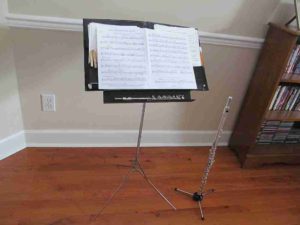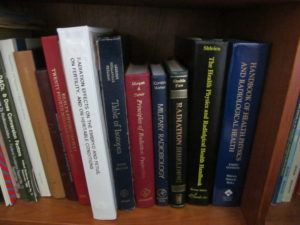UT Considers Money Aspects First
[Letter published by the Knoxville News Sentinel after November 1, 2007]
It strikes me that the differences of opinion between UT administration and UT faculty and lower-ranking staff arise from UT administration’s not running UT as a business on the one hand and yet trying to commercialize UT on the other hand. That is, contrary to what a normal business would do, UT is underfunding the maintenance on its physical plant, neglecting to consult its staff (professors and support personnel) in making major decisions, and worst of all, downprioritizing the interests of its students, who are supposedly its core customers. At the same time, UT is trying to market its land, facilities, and people – in effect, proclaiming that “All you see here is for sale or rent”.
Dissolving a committee that did not reach the desired conclusion, as in the Cherokee Farms Planning Committee case? It’s been done before. In 2001, the UT Radiation Safety Officer left. The UT vice president who oversaw the Rad Safety Office proposed to appoint as the new RSO a newly minted PhD who had been working in the Rad Safety Office during his graduate years and was now the acting RSO. The VP was keen on this person because the person’s wife was a hotshot researcher whom UT wanted to keep happy because she attracted a lot of research grants. The Rad Safety Committee saw it differently: they felt that the proposed RSO was too difficult to work with, considering the variety of professors and research groups that he would be dealing with. Indeed, two people in the Office had already quit rather than work for him. The committee insisted on considering other candidates. The VP thereupon dissolved the Rad Safety Committee (on which some members had served for years) and appointed a new one. He also had a letter sent to all those who had already applied for the RSO job, telling them that they would have to reapply according to a new RSO job description (which had been tailored to match his preferred candidate’s qualifications). Although two other token candidates were eventually interviewed, the “correct” conclusion was reached and the VP’s candidate got the job. The turnover in the Office after he took over was fierce.
Compromising the effectiveness of traditional facilities and activities because they don’t make money for the university? Gardeners who read about the proposal to move the UT Trial Gardens blanched at the thought. Plants are not like pieces of furniture that you can just move around; amended and worked soil can’t be produced at the drop of a hat. The philistines in UT administration do not appreciate the magic of gardens and the significant social amenity that a public park can be, therefore they discount the value of the Trial Gardens in testing and displaying plants and as a calm and welcoming place to go. The Trial Gardens are the closest thing Knoxville has to a botanical garden. The proposal has been shelved for now, but East Tennessee plant lovers are on notice that the Trial Gardens site may be in play. From the big quasi-private developments taking place on UT land to the loss of traditional little facilities (e.g., the formerly convenient access tunnel now used for storage, the University Club), everything is up for sale or rent at UT, it seems.
Setting teaching interests aside in favor of making a buck? A recent example illustrates the trend. About 26 students (including me) were signed up to take a Tuesday night course this semester; many of these students had full-time day jobs, so the program of which this was the main course was structured around that. On the day before the fall semester started – after I had taken the Graduate Record Examination (required even though I already had two master’s degrees), paid my fees, and obtained my books — the professor told me by E-mail that the night was to be changed to Thursday, when I had a conflict. From further communications with the professor and the head of his department, I learned that a contract had recently come through for the professor and he would be spending Monday through Wednesday working in another state. This was apparently not research per se; when I used the terms “research” and “contract work” in the same sentence to distinguish between them, nobody contradicted me. The professor made it clear that the work would be financially beneficial to him personally. The department head said he had approved the work because it was “in the best interests of the department”, i.e., it kept the professor happy and UT would not lose him; he asserted that doing such work was part of the mission of the university. But 26 other people had to scramble to rearrange work schedules, child care, etc., on very short notice. I dropped out of the program because of my conflict. The professor was very kind and apologetic about the whole thing, but the department head airily told me that I should just wait and take the course next year; I replied (because he knew I was 57 and out of work) that that was tantamount to his telling me “Let you eat cake”. (I had to explain to him about Marie Antoinette.) He Note that the class could not be moved to Friday night partly because on Friday nights before a game day, UT essentially shuts down for security reasons and academics have been given to understand that they should not schedule anything on campus on those nights. Talk about the athletic tail wagging the academic dog!
In conclusion, I stand with those faculty, students, and friends of UT who are trying to stem the tide of commercialization of all things UT. I fear that their efforts will be in vain, because money seems to talk so much louder than mere ideas.
UT Puts Money First, Students Second
[Letter published in the Knoxville News Sentinel after February 18, 2008]
In the 2/16/08 News-Sentinel “Citizens’ Voice” column, Tom Callcott noted that one aspect of the UT campus-system administration conflict was the differing opinions regarding research versus teaching. Research and teaching are of course the two most important missions of a university, but most people would surely regard teaching as the more important, especially at a publicly funded institution. Also, as Dr. Callcott pointed out, research that involves students is part of both missions. Nowadays, however, as Dr. Callcott’s quotation of Dr. Milhorn indicates, teaching may be regarded as far inferior to research and given a low priority.
In my undergraduate and graduate days (1968-1976), academic departments and university administrations emphasized the primacy of the teaching mission. As a graduate student at Purdue University, I was a teaching assistant under the one professor in the Physics Department ever to win promotion on the basis of teaching merit alone; at the request of the department, he had given up his research to manage the complex of physics service courses for engineers and the associated corps of teaching assistants so that his fellow professors could concentrate on their research. The courses he taught and supervised were excellent and his teaching assistants all were loyal to him. Similarly, an instructor in the same department carefully managed the physics courses for students majoring in ag, home ec, and health sciences; these courses were not “blown off” by the department because, e.g., they did not require knowledge of calculus. Once, a hotshot physics researcher was granted relief from teaching for a semester in order to prepare a graduate course in his specialty. The students complained almost en masse when the course turned out to be disorganized and unprepared. The professor confessed that he had spent the entire prep time doing research with his postdoc. The department took this lapse seriously: they apologized to the students and the professor was reprimanded.
It seems to me that UT does not take the attitude that they owe students good teaching, or even any teaching at all. Last summer, after being laid off, I decided to enter the UT certificate program for nuclear criticality safety. The head of the UT Nuclear Engineering Department told me I first had to take the Graduate Record Examination. I pointed out that I hold master’s degrees in Physics and Nuclear Engineering from Purdue; that I had taken the GRE many years ago, but the testing company does not keep records that long; and that I had taken two UT Industrial Engineering courses that included graduate students. The GRE is supposed to assess readiness for graduate work, which I had clearly demonstrated, so I asked that the GRE requirement be waived. But the head said that this was a requirement set by the head of the School of Engineering and there was no appeal. If I pushed any more about it, he implied, I would not be admitted to the program. So at a cost of $140, I took the darned test. I was admitted to the program, paid my $2300 for the two fall courses and fees, sent off and paid for my books, and arranged my schedule.
Two days before the semester started, the professor of the main certificate course told me that the course night was to be moved from Monday to Thursday — the one night that I had a conflict. By talking to the professor and the department head, I found out that the course was being moved to accommodate the professor’s schedule: he had just been given a work contract and had to be at Portsmouth [Ohio] Monday through Wednesday. In speaking with them, I distinguished between “research” and “work for others” (i.e., nonresearch work); neither one contradicted my understanding that the contract was work for others. The professor said that he could earn more if he left UT and took a job outside, so this was a compromise that allowed to him to stay at UT. The head stated that he had allowed the professor to accept the contract “in the best interests of the department”, i.e., he would do what he had to do to keep professors happy. It was unclear to me if UT would benefit financially by this contract, but certainly the professor and the head implied that the professor would benefit personally. The head airily told me I could re-enter the program next year. Since he clearly knew my approximate age from my undergraduate transcripts and since he knew I was out of work, I told him that his statement sounded like “Let you eat cake”. (I had to explain it to him.)
So there you have it, folks: not just actual research but even work for others can trump the teaching mission at UT. For personal reasons, I could not resolve my Thursday night conflict and had to drop out. I sold my books to other students and I finally got the last of the $2300 back two months later, but I was still out the $140 and it was too late to get into any other program at the university. I was told that there had been 26 students signed up for the course — who all had to rearrange work, childcare, and other schedules on short notice.
In his column, Dr. Callcott also pointed out something that non-university people may not have appreciated about the research versus teaching conflict: that the UT system administration wants to add many professors in a nominal, on-paper manner in order to have their research funded through UT and thus put more funds into UT coffers through overhead charges. It is not clear to me if these professors would actually ever have to teach any classes and if they would be required to have at least one graduate student working with them for some minimum period of time. In, e.g., the Nuclear Engineering and Physics Departments, one can see that only a fraction of the list of professors (full and associate professors, adjunct faculty, and “research professors”) is giving a course in any given semester. What are the non-teaching ones doing in terms of fostering students? They can’t all be supervising thesis research, surely.
Finally, I would like to add to what Dr. Callcott said about ORNL involvement. When UT-Battelle took over ORNL in 2000, the then-president of UT exulted about how UT was going to benefit from being part of ORNL management. I believe that subsequent events have shown this was not only because UT would have expanded access to ORNL’s user facilities, but also because all kinds of fishy financial things could then be done, from the minimization of overhead charges mentioned by Dr. Callcott to the entry of undue commercial influence by companies into UT and ORNL life using the excuse that it is for “education” and will “benefit the community”. To remind readers, back in the [UT President] Shumaker days a UT research foundation was established as a quasi-private entity in order to circumvent state controls on money coming into the university, e.g., from cooperative research agreements (although some aspects of this were dropped); UT was to establish a business incubator to help researchers “and students” start businesses to commercialize research discoveries; the head of the UT Physics Department waxed enthusiastic about the ORNL-UT association, saying that sources such as the National Science Foundation would be supporting ORNL research through grants and scholarships to UT students (who I feared would be exploited as low-paid technicians); and the State poured millions into funding construction of new research centers at ORNL. All this was at the same time as UT was cutting out classes and even whole majors, pleading poverty.
Not to sound like Chicken Little, but if this trend continues, as I wrote earlier, “It may be only a matter of time before UT is transformed into a vehicle for private, commercial research, with many “professors” devoting little or no time at all to teaching and with any noncommercial majors (Medieval Literature, say) being eliminated as unproductive. Instead of “Publish or Perish”, it may be “Profit or Perish” “. If the university does only one thing well, it should be to prepare students for lives and careers — not enrich their professors, help administrators build empires, and put up an “Open for Business” sign regarding commercialization of UT facilities and resources.
Selloff of Valuable Facilities by the University of Tennessee
[Published by the Knoxville News Sentinel, April 11, 2009]
I second Lennis Waggoner’s concerns (News-Sentinel, 3/29/09) about UT’s selling off its Sutherland Avenue apartments. I too alerted on the item in Josh Flory’s column about developers’ being interested in this piece of land, and I wonder if UT’s saying that the land will be used for “athletic fields” is just the cover story of the moment that will be discarded later on when the land is quietly handed over to private interests.
Does UT really need more athletic fields, more than married students need housing? In these tough economic times, why UT would consider pouring more money into athletics? Yet in a News-Sentinel article (3/31/09) it was stated that not only would the fields be built, they might be used for Friday night football parking for a local high school. With such vague statements does UT attempt to build community support for its actions.
UT has underfunded maintenance on its physical plant (as on those apartments), neglected to consult its staff (professors and support personnel) in making major decisions, and worst of all, downprioritized the interests of its students, who are supposedly its core customers. At the same time, UT is trying to market its land, facilities, and people, saying in effect that “All you see here is for sale or rent”.
Remember the Cherokee Farms Planning Committee that first considered moving out the Ag Farm in favor of a research park? That committee did not reach the correct conclusion, so it was dissolved and a new, tame one was appointed. The farm is no more. Remember the proposal to move the UT Trial Gardens, as though the plants were so much furniture? This facility is the closest thing that Knoxville has to a public botanical garden. The philistines in UT administration backed off and shelved the proposal, but East Tennessee plant lovers are still on notice that the Trial Gardens site may be in play.
From the big quasi-private developments taking place on UT land to the loss of traditional little facilities (e.g., the University Club and the formerly convenient access tunnel now used for storage), everything is up for grabs at UT, it seems. I sympathize with those faculty, students, and friends of UT who are trying to stem the tide of commercialization of all things UT, but I fear that their efforts will be in vain, because money seems to talk so much louder than mere ideas these days.
UT Considers Building a Hotel and Conference Center in Its New Research Park
[Letter published(?) in the Knoxville News Sentinel after December 17, 2009]
In a community column last year, I noted that UT’s conversion of the Cherokee Farms site from a teaching and experimental farm to a research site appeared to be “Esau thinking”: short-sighted grasping for immediate gain to the detriment of long-term best interest. I said that part of the patrimony of the people of Tennessee — UT — was being squandered for the benefit of private interests and the interests of UT higher-ups.
Now we hear (Knoxville News-Sentinel, 29 November 2009) that UT is considering building a “state-of-the-art, environmentally friendly” hotel and conference center on what is now being called “the Cherokee Farm research campus”. UT is testing the waters by hiring a consultant (for $35,000 of scarce UT funds) to study the feasibility of the project. No one will be surprised if the consultant comes up with the desired conclusion that this is just what UT, ORNL, and the greater Knoxville community need.
The project could be carried out by either UT itself, in which case approval of the board of trustees would be required, or by a private developer, in which case board approval would not be necessary — even though UT would continue to own the land and would be leasing the land to the developer and even though the developer would have to share the site with UT facilities.
In the latter and more likely case, UT’s statement that the research done at the site was expected to “generate new partnerships and new commercial opportunities” will come true, but not in the way people might think. Surely this is more Esau thinking: bit by bit, use of the site will be transferred to private interests, with no public say-so in the matter. Eventually even the ownership of the site will likely be ceded to private interests because “UT needs the money”. You can’t have a world-class university if you are always holding a giant yard sale of your assets.





Recent Comments